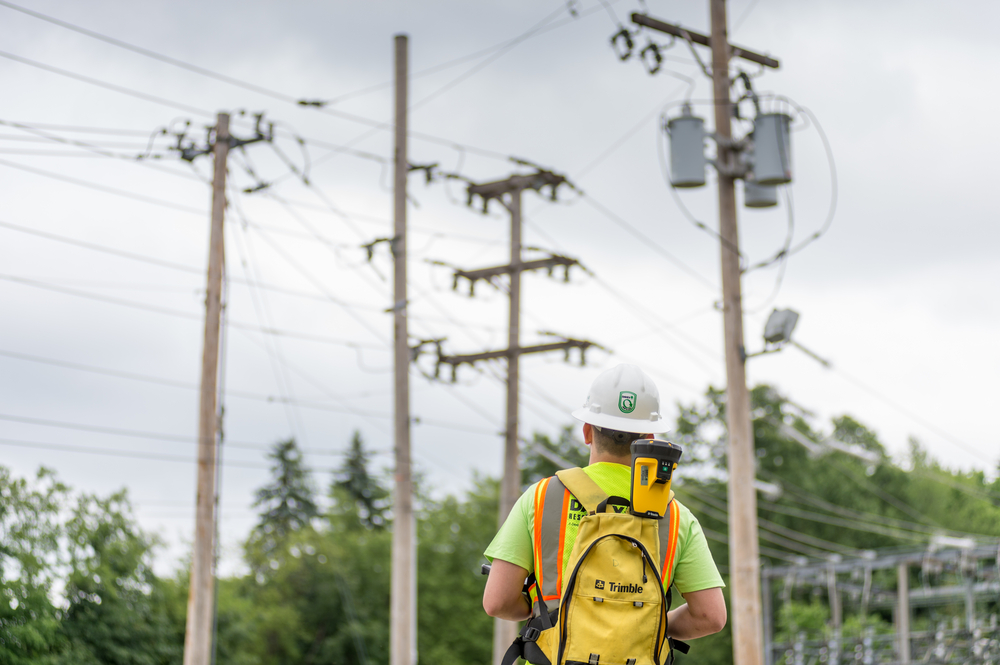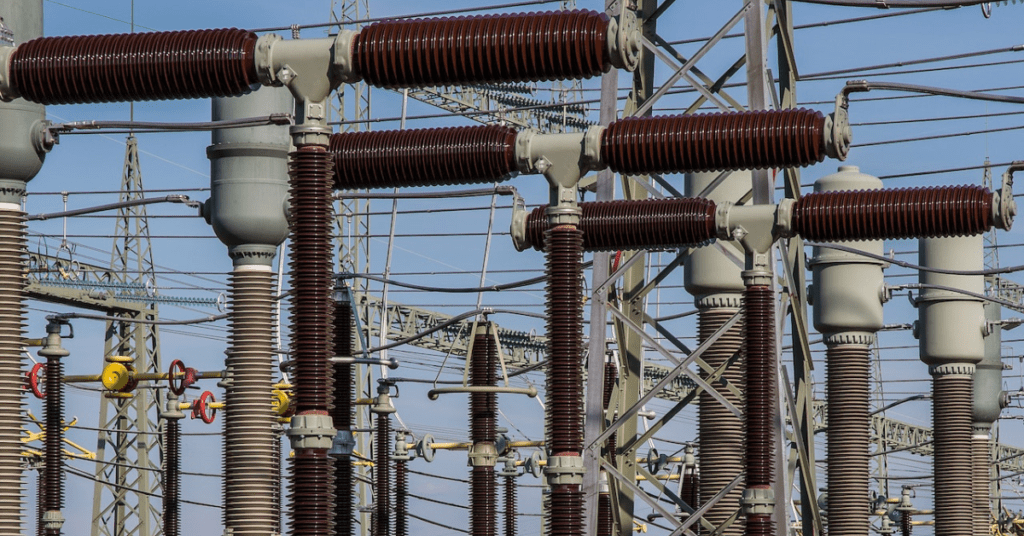The electric utilities central industry is a vital component of modern society, providing power to homes and businesses. Within this industry, there are a variety of roles available, each with their own unique responsibilities and qualifications. In this article, we will be answering many of your common questions including how many jobs are available in electric utilities central. We also will explore the various job opportunities available in the electric utilities central sector, including the qualifications and skills required to succeed in this industry
According to the Bureau of Labor Statistics (BLS), there are over 675,775 jobs available in electric utilities central, in the United States.
- What is an Electric Utilities Central?
- How Many Jobs are Available in Electric Utilities Central?
- Is Electric Utilities Central a Good Career Path?
- Best Paying Jobs in Electric Utilities Central
- Requirements to Work in Electric Utilities Central
- How Many Utility Workers are There in the US?
- How Big is the Utilities Industry?
- 3 Largest Electric Utilities Central Companies in the US
- Conclusion
What is an Electric Utilities Central?
An electric utility central refers to a company or organization that is responsible for generating, transmitting, and distributing electricity to a specific geographical area or region. These companies typically operate large power plants and transmission networks. They are regulated by government agencies to ensure that they provide safe, reliable, and affordable electricity to their customers. Some electric utilities are publicly owned, while others are privately owned.


How Many Jobs are Available in Electric Utilities Central?
According to the latest data from the Bureau of Labor of statistics, there are 675,775 jobs available in electric utilities central, in the US. This number is made up of a wide range of sectors in the electric utitiles central industry and is constantly changing. The job roles available include engineers, electricians, power plant operators, line workers, and administrative staff. Most of the jobs available are in the operation and management of power plants, and the transmission and distribution of electricity.
Here is a list of some of the jobs available in electric utilities central:
• Project manager
• Power system operator
• Gas controller
• Nuclear engineer
• Line worker


Is Electric Utilities Central a Good Career Path?
Electric utilities central is a stable and essential industry that provides a reliable source of electricity to homes and businesses. Therefore, this is an industry that will always be around, meaning good job stability. This sector also offers you good benefits, and flexibility. Furthermore, if you have a passion for clean energy and sustainability, getting a job in this sector will give you a chance to work on many innovative projects.
Here are 7 benefits to a career in electric utilities central:
1. Job stability
As the demand for electricity is constant, the electric utilities central industry typically provides stable employment opportunities.
2. Competitive salary
Electric utilities central professionals often earn competitive salaries and may be eligible for benefits such as health insurance, retirement plans, and paid time off.
3. Advancement opportunities
Electric utilities central companies often have a variety of roles and positions, providing opportunities for career advancement and growth.
4. Technical expertise
A career in electric utilities central involves working with complex systems and technologies, providing opportunities to gain and apply technical expertise.
5. Impactful work
The electric utilities central industry plays a vital role in ensuring that homes and businesses have a reliable source of electricity, making the work impactful and meaningful.
6. Job diversity
The electric utilities central industry offers a variety of roles such as engineers, technicians, line workers, and many more. So, you can pick a role that best aligns with your skills and interests.
7. Potential for working with green energy
As the world is moving to cleaner energy resources, there is a growing demand for professionals who can work with renewable energy sources like solar, wind, etc. So, a career in electric utilities central can provide opportunities to work in the field of green energy.


Best Paying Jobs in Electric Utilities Central
As we mentioned earlier, electric utilities central has many varied job roles for all types of skill sets. Some of these jobs are paid extremely well with annual salaries in some cases being double the US national average.
Here are some of the best paying jobs in electric utilities central:
Power Plant Operations Manager
A power plant operations manager is a professional who is responsible for overseeing the day-to-day operations of a power plant. This typically includes managing the production of electricity, monitoring and maintaining equipment, and ensuring compliance with safety regulations. On average, this position will earn you $150,000 annually. The salary will differ depending on qualifications, experience, and employers’ pay scale.
Power Transmission Engineer
A power transmission engineer is a professional who designs, develops, and maintains power transmission systems. These systems deliver electricity from power plants to homes and businesses. They work on the high voltage transmission and distribution systems that transport electricity over long distances. Power transmission engineers can earn an average annual salary of $140,000 depending on experience and employer.


Regulatory Compliance Officer
A regulatory compliance officer is a professional who is responsible for ensuring that an organization is in compliance with laws and regulations. Specifically those laws that apply to its operations and industry. They work to identify and mitigate any legal and regulatory risks to the organization. The average annual salary for a regulatory compliance officer in the US is $110,000.
Senior Application Analyst
A Senior Application Analyst is a professional who is responsible for analyzing, designing, developing, and maintaining software applications within an organization. They work closely with business stakeholders and other IT teams to understand their needs and requirements. They then design and develop software solutions to meet those needs. A senior application analyst earns a salary of $94,600 annually.
Electrical Project Manager
An Electrical Project Manager is a professional who is responsible for overseeing and managing the planning, design, construction, and commissioning of electrical projects. They work closely with a team of engineers, technicians, and other professionals to ensure that projects are completed on time, within budget, and to the highest quality standards. The average annual salary for an electrical project manager is $89,000.


Electrical Engineer
An Electrical Engineer is a professional who designs, develops, and tests electrical equipment, systems and components. They work with a wide range of technologies, including electrical power systems, electronic devices, control systems, and telecommunications systems. They use their knowledge of electrical theory, materials science, and mathematical models to design and develop new electrical systems and components. On average, an electrical engineer earns $87,000 annually, but the salaries slightly differ depending on experience and qualifications.
Power System Engineer
A Power System Engineer is a professional who specializes in the design, analysis, and operation of power systems. They conduct research and development, collaborate with other engineers, develop and test prototypes and write technical reports. They also inspect and maintain systems, stay up-to-date with new technologies and advise on the selection of materials and equipment for power systems. Power system engineers earn an average annual salary of $82,000.


Requirements to Work in Electric Utilities Central
The specific requirements to work in electric utilities central can vary depending on the job function and level of responsibility.
However, in general, the following qualifications and experiences are typically required:
Educational Qualifications
Many jobs in electric utilities central require a bachelor’s or master’s degree in electrical engineering, power engineering, or a related field.


Professional Certifications
Some jobs may require professional certifications such as Professional Engineer (PE), Project Management Professional (PMP), or Certified Energy Manager (CEM).
Work Experience
Many jobs in electric utilities central require several years of relevant work experience, such as experience in power system design, analysis, and operations.
Technical Skills
Electric utilities central professionals should have a strong understanding of electrical theory, materials science, and mathematical models. In addition, they should have experience with software and tools commonly used in the industry.


Safety Awareness
Electric utilities central professionals should have a strong understanding of safety regulations and best practices and be aware of the potential hazards associated with their work.
Communication and Teamwork
Electric utilities central professionals should have strong communication and teamwork skills. This is vital as they will often be working with a team of engineers, technicians, and other professionals to complete projects.
Project Management
Those applying for managment positions should be familiar with project management methodologies and have experience planning, scheduling, and coordinating large-scale projects.


Leadership
Some positions may require leadership skills and the ability to manage teams and projects. In this case it is useful to have experience with budgeting, forecasting, and managing resources.
How Many Utility Workers are There in the US?
According to the Bureau of Labor Statistics, there are over 1 million people employed in the utilities industry in the US. This includes the electric power generation, transmission and distribution, and natural gas distribution sectors. In addition, there is a wide range of other occupations included such as mechanics, plumbers and administrators.
How Big is the Utilities Industry?
The size of the utilities industry can be measured in various ways such as revenue, market capitalization, or number of employees. According to data from the Energy Information Administration (EIA), the electric power industry in the United States generated about $400 billion in revenue in 2019. In terms of market capitalization, as of September 2023, the top 10 utility companies in the US have a combined market capitalization of over $500 billion.
It’s important to note that the size of the utilities industry can fluctuate based on various factors such as economic conditions, government regulations, and technological advancements.
3 Largest Electric Utilities Central Companies in the US
Exelon


Exelon is a leading electric utilities company that operates in several states across the United States. It is the largest nuclear power generator in the country and one of the largest electricity providers in the country. The company operates through several subsidiaries, including Commonwealth Edison, PECO Energy, and Baltimore Gas and Electric. Exelon’s commitment to clean energy is evident in their portfolio that includes a significant amount of nuclear, wind and solar power generation. The company has a strong focus on sustainability, and has set ambitious goals to reduce carbon emissions and increase the use of renewable energy sources.
Exelon’s headquarters are located in Chicago, IL and they have 31,518 employees. The company’s annual revenue is $36.6 billion.
Duke Energy


Duke Energy is a leading electric utilities company that serves millions of customers across several states in the United States. The company operates in several different states including North Carolina, South Carolina, Florida, Indiana, Ohio and Kentucky. It is one of the largest electric power holding companies in the United States, with a diverse portfolio of energy resources, including nuclear, coal, natural gas, hydroelectric and solar power generation. Duke Energy has also invested in advanced technology to improve the reliability and efficiency of its energy grid.
Serving around 8.2 million people across the South and Central United States, Duke Energy amasses annual revenue of $24.7 billion. Their headquarters are in Charlotte, NC and they have 27,605 employees.
Southern Company


Southern Company is a leading electric utilities company that serves millions of customers across south-eastern United States. The company operates through several subsidiaries, including Alabama Power, Georgia Power, Gulf Power, Mississippi Power, and Southern Power. With a long history of delivering reliable and affordable energy, Southern Company is a major player in the electric utilities industry. They are well known for their commitment to sustainable energy and their positive impact on the communities they serve.
Southern company is headquartered in Atlanta, GA, and has 27,164 employees. Their annual revenue is $23.1 billion.
Conclusion
In conclusion, jobs in the electric utilities central industry offer a wide range of opportunities. These companies are responsible for providing reliable and affordable energy to millions of customers. They employ a wide range of professionals including engineers, technicians, analysts, and business professionals. The industry is constantly evolving, with new technologies and innovations being developed all the time. This means that there are opportunities for continuous learning and growth.
Additionally, electric utilities companies are also committed to sustainability and reducing their impact on the environment. This makes it an appealing industry for individuals who are passionate about protecting the planet. Overall, the electric utilities central industry offers a wide range of rewarding and challenging careers. If you are looking for a stable and meaningful profession, electric utilities central may be the industry for you.

